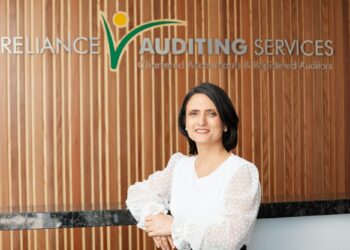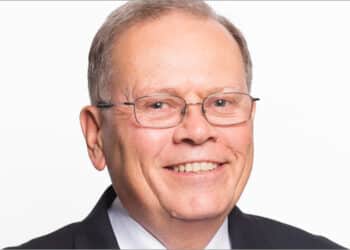Ahead of his session at the upcoming SMSF Association National Conference, SMSF Association deputy chief executive Peter Burgess said with the revised start date for the government’s proposed exempt current pension income changes scheduled for 1 July this year, the industry should be keeping an eye on any updates with this measure.
The government first announced two red tape measures relating to ECPI as part of the 2019 Federal Budget.
One of the measures was a proposal to allow superannuation funds with interests in both accumulation and retirement phases during an income year to choose their preferred method of calculating exempt current pension income (ECPI).
This will essentially give trustees the choice of whether they want to apply the current approach to ECPI where the fund has both segregated and unsegregated periods during a financial year, or revert back to the ‘old method’ where the actuarial certificate will apply to the entire financial year to determine a percentage based upon the income earned by the fund.
Mr Burgess said the industry is still waiting for a consultation paper with further details on the measure.
“The interesting part will be how trustees need to elect which method they’re going to use. There’s been some discussion around whether trustees will need to do that at the beginning of the financial year,” he explained.
Accurium general manager Doug McBirnie previously stated that he suspected trustees would need to make the election to segregate in advice.
“I’d be surprised if the government allowed trustees after the event to pick and choose which gave them the best tax outcome,” Mr McBirnie said previously.
While Mr Burgess said requiring trustees to make the election at the beginning of the year would have integrity benefits, it would be a more difficult regime to introduce.
“I think it’s more likely that we’ll see trustees needing to make that election at the end of the year. In terms of revenue, the method that’s used will not have a material impact on government revenue,” he stated.
“I think Treasury and the ATO have already made that call given they’re prepared to offer both options and it was also part of the industry’s argument for a return to the old method, a simpler method, but whatever method is used it doesn’t really have a big impact on the ECPI being claimed by the fund.”
Mr Burgess said there will likely be further details on when trustees will need to make the election once the government has released the consultation paper.
“It won’t just be a case of looking back to the old ways of doing things – the [previous] method that was used by most tax accountants a few years ago,” he said.
“Depending on the timing of asset disposals during the year, that will dictate what method is best to use. So I would expect that software systems will be enhanced to be able to do those calculations at year end to determine which ECPI method gives the best tax outcome for the fund.”
Mr Burgess will be covering the ECPI changes along with a raft of other legislative and regulatory changes for the SMSF space in his legislative and regulatory update on the first day of the SMSF Association National Conference.
In addition, Accurium SMSF technical services manager Melanie Dunn will also be covering the topic of exempt current pension income including the proposed changes in her session on SMSF pensions.
“Melanie Dunn will be talking about both methods and in what circumstances its better to use one method over the other,” explained Mr Burgess.
He also highlighted some other sessions happening over the two day conference, including Meg Heffron’s presentation on the SMSF strategy landscape.
“In pervious years Meg Heffron’s sessions have tended to focus on a particular area whether it be contributions or pensions. This year Meg has been given free rein to cover a wide range of issues so I’m sure that’s a session that delegates will get a lot of value out of,” he said.
The practice stream on the second day of the conference, he said, will be focused on how professionals can position their SMSF business for growth.
“The day will start with a session from Deloitte looking at recent trends, providing recent insights on the future of financial advice and looking at unmet advice needs,” he stated.
“That will be followed by a session by Bryan Ashenden who will be looking at the work the regulators are doing to make it easier for advisers to provide more affordable and tailored advice and making it easier for advisers to meet those unmet advice needs.”
FASEA chief executive Stephen Glenfield will also be presenting alongside Christina Kalantzis. He will discuss the recent consultation undertaken on the Code of Conduct.
“Christina will talk about some real life case studies about fee disclosures, referral arrangements and conflicts, and Stephen will talk about how the FASEA code should be applied in specific situations,” said Mr Burgess.
“The last session in that stream will be Aaron Dunn bringing everything together and talking about how to position your practice for growth.”
ATO assistant commissioner, SMSF segment Justin Micale will also provide an address on the ATO’s response to the pandemic and its regulatory stance moving forward. The ATO will also be presenting at three other sessions at the conference this year, including a session on auditor independence and a session covering the impact of COVID-19 on SMSF audits.
Colonial First State executive manager Craig Day will run a workshop session on lumpy assets and how to manage them.
“This session will bring together a lot of the topics that are being discussed over the two days including sole purpose, NALI, in house assets, the rules around acquiring assets from related parties and wrapping all those things together in a discussion around lumpy assets,” explained Mr Burgess.
Julie Steed and barrister Suzanne Mackenzie will run a session that delves into SMSF disputes and looks at some of the issues SMSFs face in complying with court orders in particular.
“They’ll be talking about what to do [in situations] where SMSFs are facing difficulties in complying with court orders,” said Mr Burgess.
Mr Burgess said there will be a wide range of other topics being covered in the sessions across the two days including in-house assets, NALI and LRBAs.
The 2021 SMSF Association National Conference is being held online on Tuesday 16 and Thursday 18 February.


